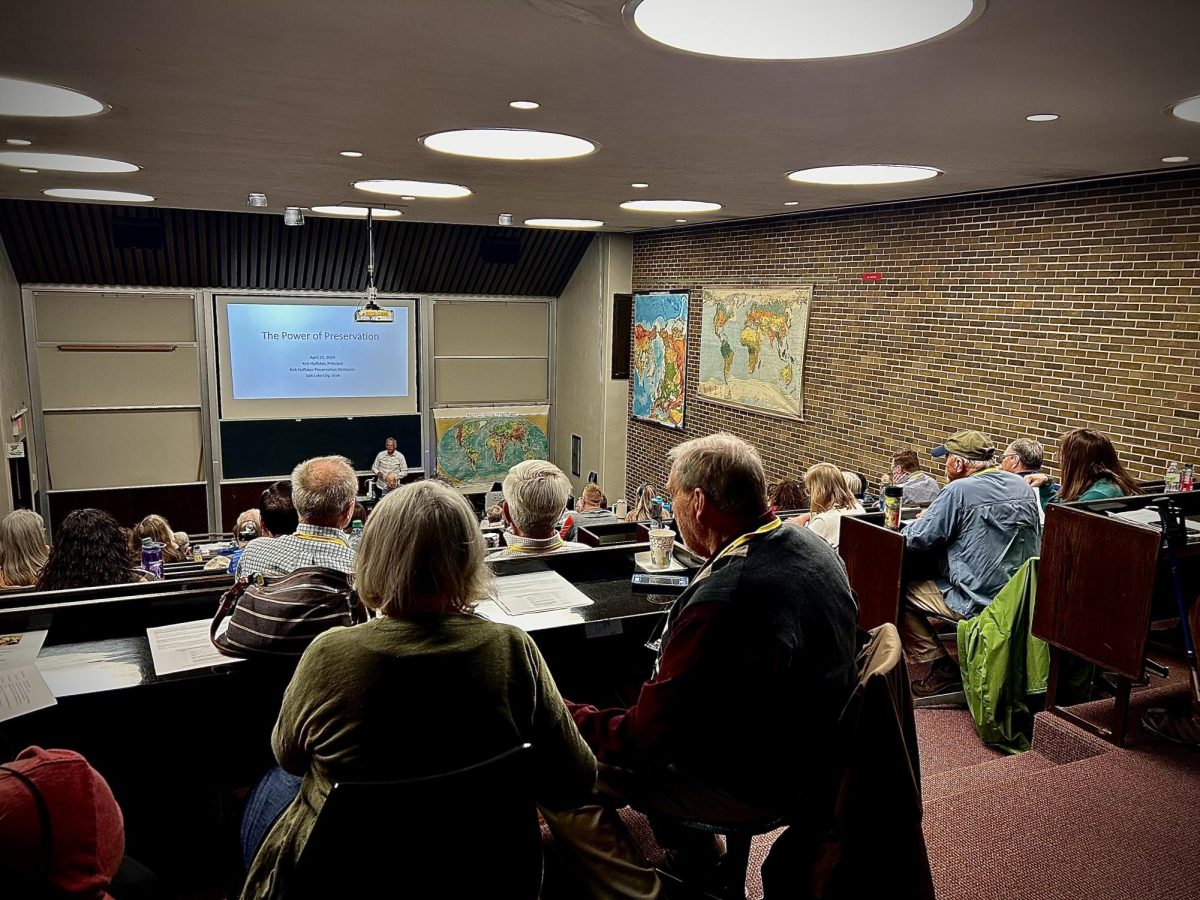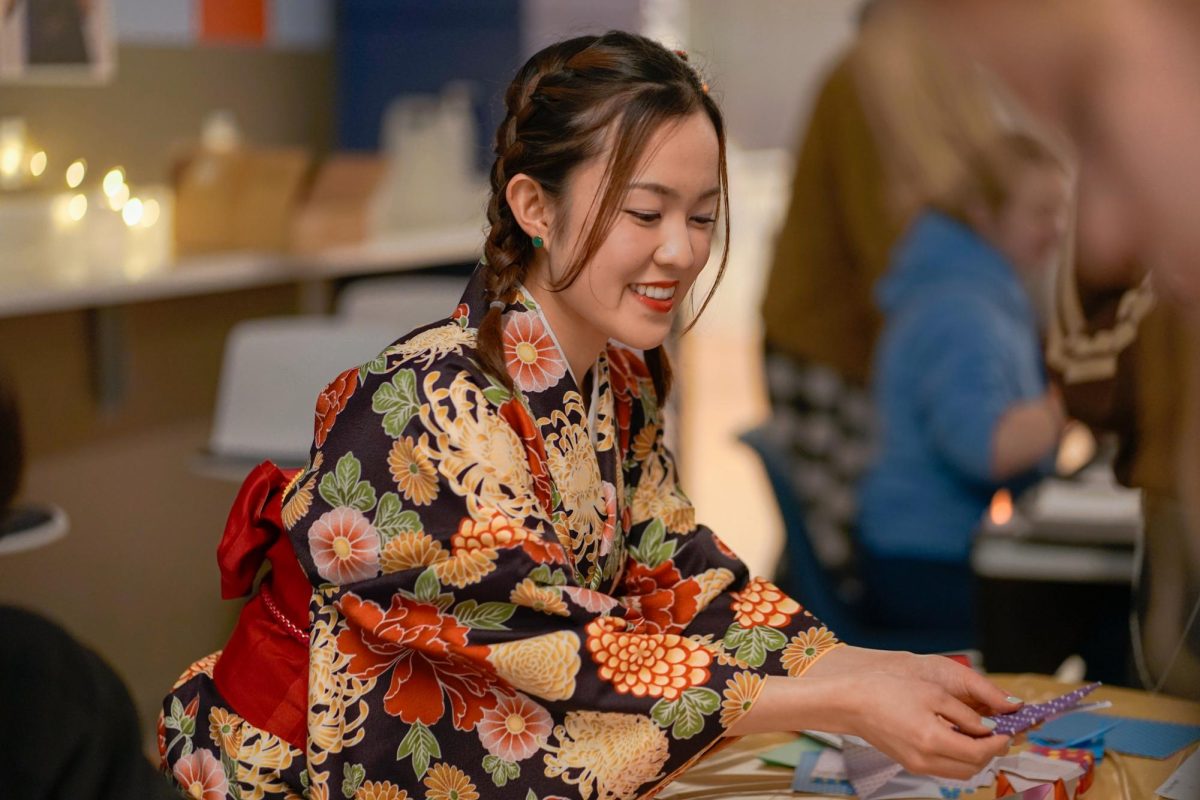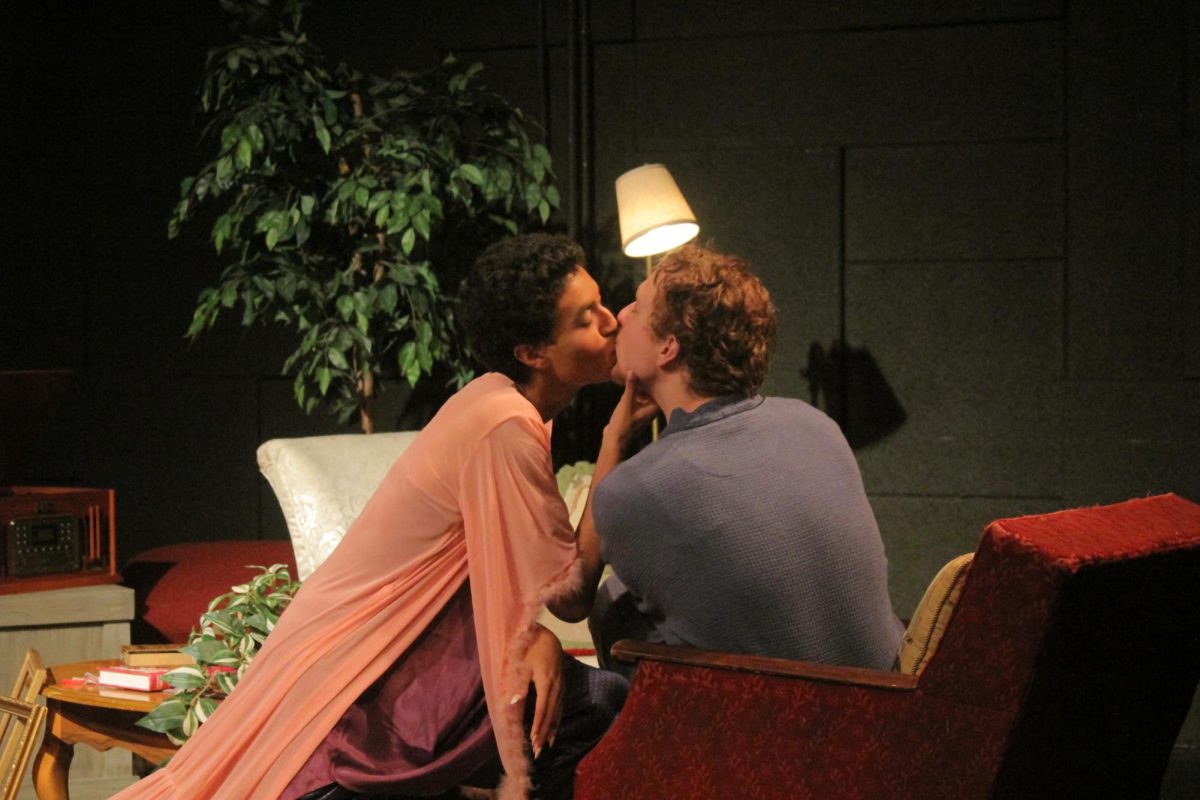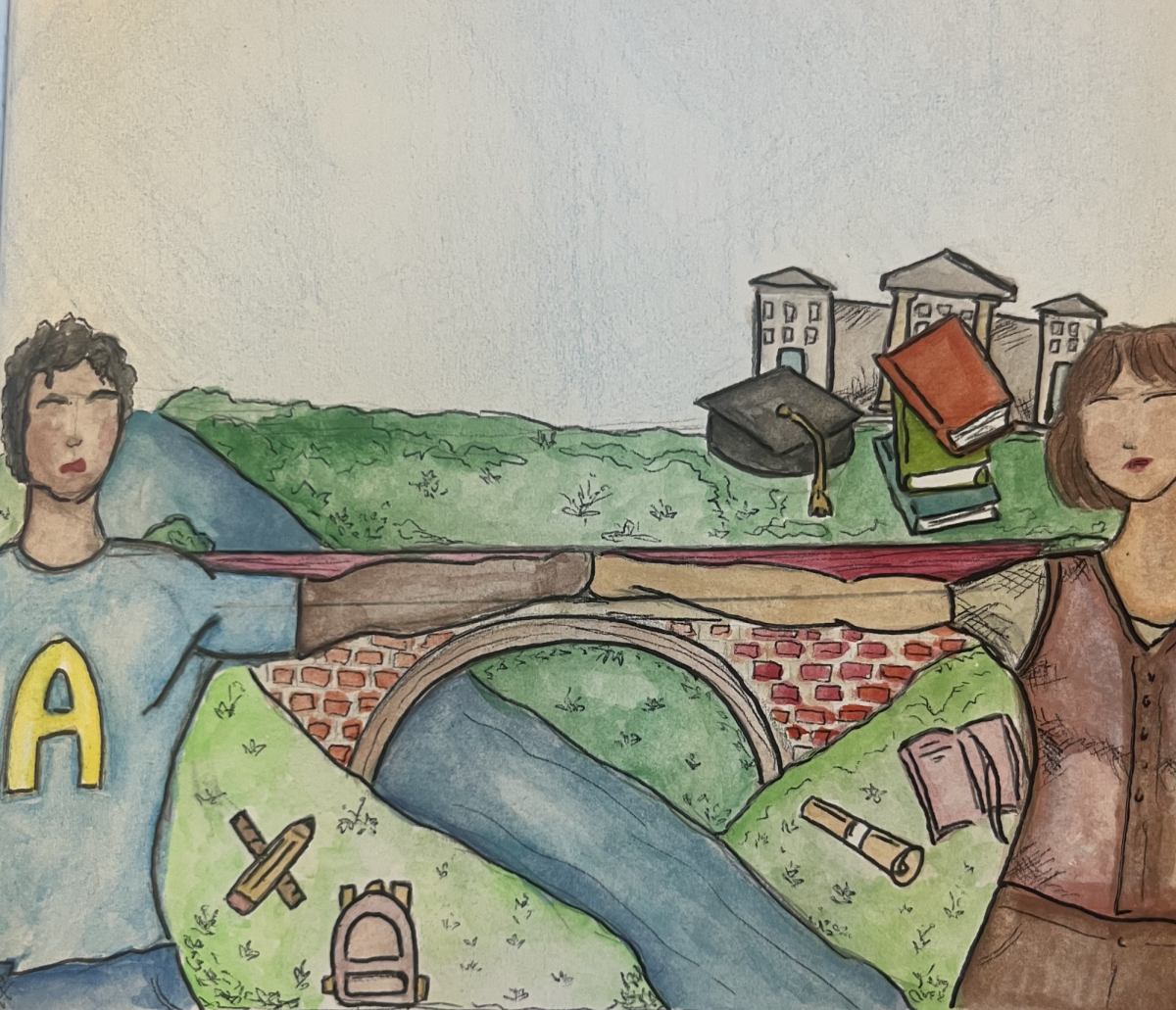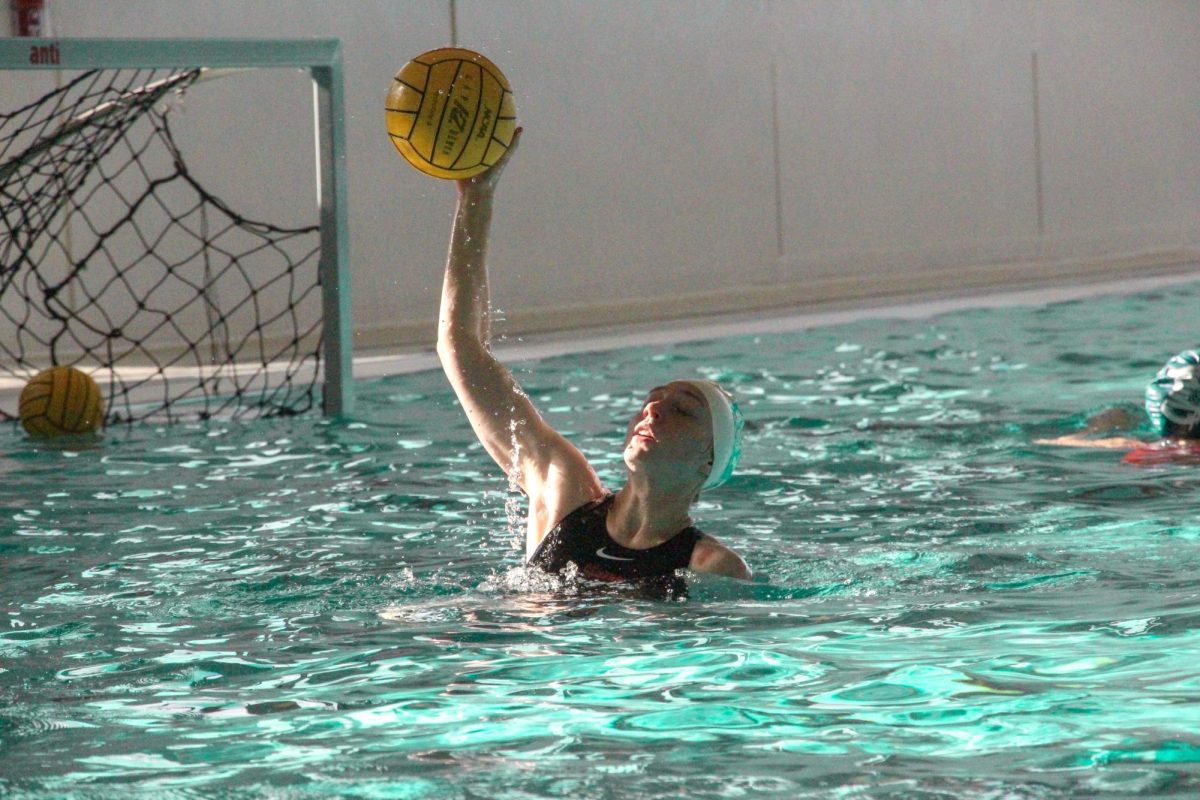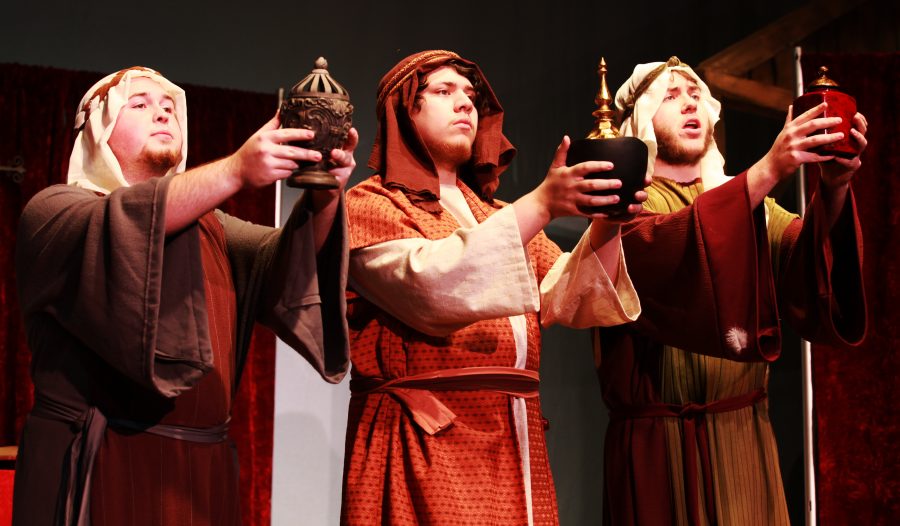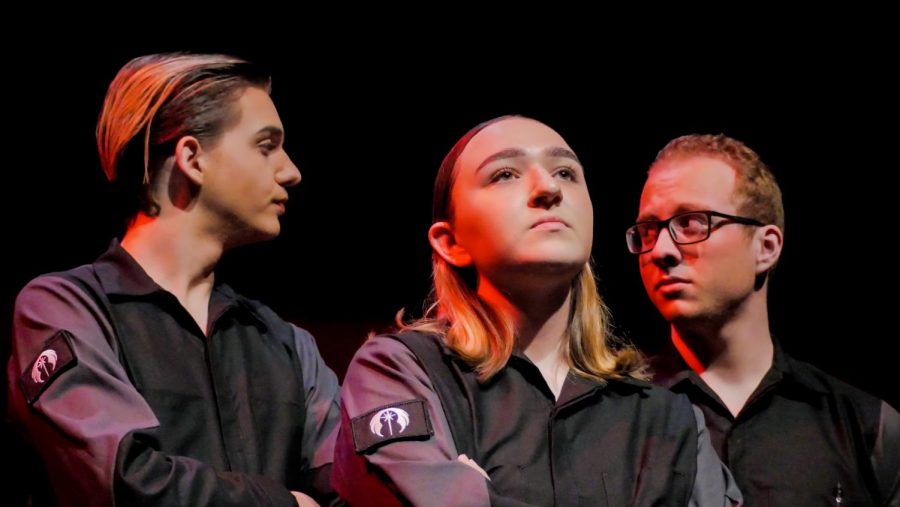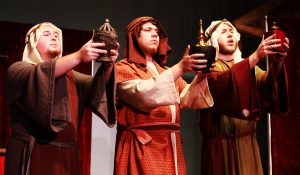
Photo credit: Shylee Garrett/Observer Staff
The Augustana Opera began the Christmas season with two productions performed back to back. Last weekend, the Opera performed “The Play of Herod” and “Only a Miracle.”
Michelle Crouch, director of both performances, made the decision to choose two operas that mirror each other.
The first opera is sung in only Latin, while the second is sung in only English, but both tell a similar story.
“The first performance takes the audience to a pre-literate place,” Crouch said. “It’s a little glimpse of what it takes to not understand what is being said, but to be expected to know what’s going on.”
“The Play of Herod” tells the story of the Magi being turned away from Herod after they had found the child of Christ, according to sophomore Sam Dunklau, who had roles in both operas.
“To summarize, the two plays tell very similar stories about the other side of the Nativity story, but do it in very fundamentally different styles,” said Dunklau.
“The Play of Herod” took on the appearance of a 13th century performance. The characters in this part of the production only sang in Latin, which Crouch says was the most difficult part.
“Latin is known as a ‘dead language,’” said Crouch. “It’s the root of so many words, but no one knows how to speak the actual language anymore.”
This performance was also different because the Latin is performed in chants. The piano only accompanied specific notes, and the rest of the performance was a cappella.
“The goal is to have the audience forget that the performers are singing,” Crouch explained.
The students were a little familiar with Latin, but had never performed the language to this extent.
“To learn an entire medieval-style chant and perform it with the same kind of liturgical accuracy that the clergy would have at that time was perhaps the most challenging aspect of this whole opera,” said Dunklau.
“Not many people are familiar with traditional Gregorian chant, how it’s supposed to flow and be phrased. So, that in combination with learning how to pronounce all of that Latin at once was difficult.”
The other production, “Only a Miracle,” illustrates the fictional story of a slave who protects the Holy Family from her owner and Herod’s soldiers. Although both operas tell the same story, they are imagined eight centuries apart.
“This play (was) done in a more contemporary, 20th century musical theater style,” Dunklau said.
Sophomore, Ellenelle Gilliam was in both parts of the opera, as well.
“From an educational standpoint, this was really an incredible experience not only for the cast but also for the audience,” Gilliam said.
“We were all exposed to a new kind of performance, but it was focused on a very well-known story. Even though Latin chant is still used in the church to this day, having a story reenacted without a translation challenged the audience to pay closer attention to detail, which then presented us as the cast to pay special attention to detail, so we could make sure our roles were being portrayed clearly.”
Augustana Opera performs back-to-back productions
December 3, 2014
Tom Hagaman, Corbin Delgado and Payton Brasher present their gifts in “The Play of Herod.” The collection of manuscripts used is known as the Fleury Playbook, and is among the most comprehensive notation for early liturgical musical material from around 1200 A.D.
Photo credit: Shylee Garrett/Observer Staff


